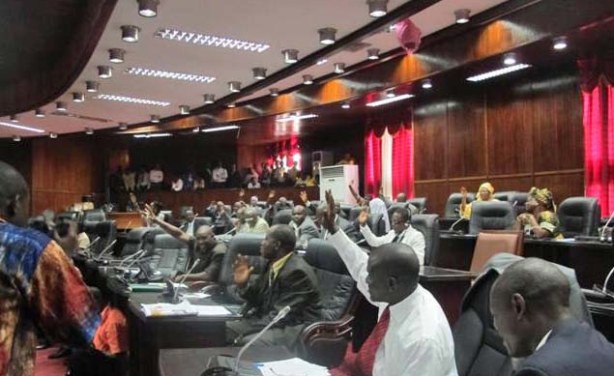Much advocacy by women’s groups and feminist leaders across the country demanding for greater participation of women in Liberia’s political affairs did not yield the expected results, considering the outcome of the October 10 presidential and legislative elections.

According to the final results released by the National Elections Commission (NEC) on the representative elections, only 9 out of the whopping 146 women (barely 6.2%) who ran for legislative seats were victorious against their male counterparts across the 73 electoral districts nationwide.
The result brings in a few new faces, but absolutely no increment to the 54th Legislature, as there were 9 women representatives in the 53rd.
The 9 winning women representatives-elect include five incumbents: Haja Fata Siryon (Bomi County District #3); Mary Karwor (Grand Bassa County District #2); Munah Pelham-Youngblood (Montserrado District #9); Julie Fatorma Wiah (Lofa County District #2); and Mariamu Fofana Beyan (Lofa County District#4); as well as four new ones: Moima Briggs Mensah (Bong County District #6); Schaack Rosana (River Cess County District #1); Ellen Atton (Margibi District #3); and Restonlyn Suacoco Dennis (Montserrado District #4).
Such a dismal performance means that women could not make the push to get the 30 percent representation that they had consistently demanded through an Affirmative Action Bill that is still languishing at the national legislature.
The Affirmative Action Bill demands a certain number of seats in the Legislature for women, youth and people living with disabilities, as a way of building inclusivity into the lawmaking process, encouraging the participation of marginalized groups.
In August 2016, the Liberian Senate passed and forwarded the Affirmative Action Bill to the House of Representatives amid strong support from various women groups and other stakeholders under the leadership of the Women Legislative Caucus and the Ministry of Gender Children and Social Protection. The House of Representatives welcomed the idea of the bill but slashed the number of dedicated women seats by at least 10, a move on which the Senate is expected to concur.
He argued that the Constitution provides equal opportunity for all without discriminating against any sector of the Liberian society, thereby opening the corridor for all Liberians to vie for any position in the public or private sector.
According to him, the decision to allot seats to the groups concerned should be made through a national referendum because the proposed seats would cost taxpayers at least US$3 million.
He noted that in order to help the people, the Affirmative Action Bill should instead invest funds in job skills and other training programs that will develop and prepare the physically challenged, youth and women for the job market in the private sector.

